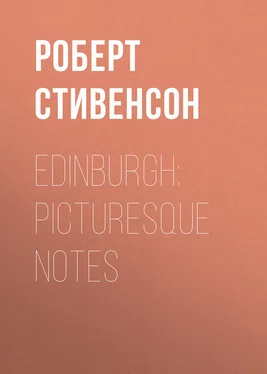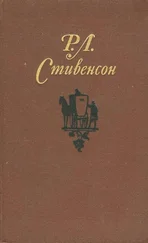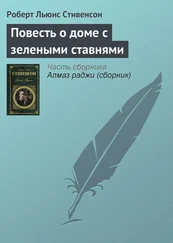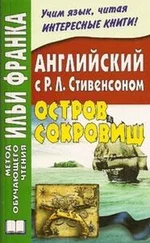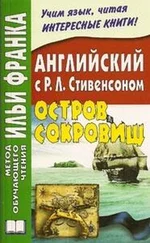Роберт Стивенсон - Edinburgh - Picturesque Notes
Здесь есть возможность читать онлайн «Роберт Стивенсон - Edinburgh - Picturesque Notes» — ознакомительный отрывок электронной книги совершенно бесплатно, а после прочтения отрывка купить полную версию. В некоторых случаях можно слушать аудио, скачать через торрент в формате fb2 и присутствует краткое содержание. Жанр: literature_19, Культурология, foreign_antique, Путешествия и география, на английском языке. Описание произведения, (предисловие) а так же отзывы посетителей доступны на портале библиотеки ЛибКат.
- Название:Edinburgh: Picturesque Notes
- Автор:
- Жанр:
- Год:неизвестен
- ISBN:нет данных
- Рейтинг книги:3 / 5. Голосов: 1
-
Избранное:Добавить в избранное
- Отзывы:
-
Ваша оценка:
- 60
- 1
- 2
- 3
- 4
- 5
Edinburgh: Picturesque Notes: краткое содержание, описание и аннотация
Предлагаем к чтению аннотацию, описание, краткое содержание или предисловие (зависит от того, что написал сам автор книги «Edinburgh: Picturesque Notes»). Если вы не нашли необходимую информацию о книге — напишите в комментариях, мы постараемся отыскать её.
Edinburgh: Picturesque Notes — читать онлайн ознакомительный отрывок
Ниже представлен текст книги, разбитый по страницам. Система сохранения места последней прочитанной страницы, позволяет с удобством читать онлайн бесплатно книгу «Edinburgh: Picturesque Notes», без необходимости каждый раз заново искать на чём Вы остановились. Поставьте закладку, и сможете в любой момент перейти на страницу, на которой закончили чтение.
Интервал:
Закладка:
Robert Louis Stevenson
Edinburgh: Picturesque Notes
CHAPTER I. INTRODUCTORY
The ancient and famous metropolis of the North sits overlooking a windy estuary from the slope and summit of three hills. No situation could be more commanding for the head city of a kingdom; none better chosen for noble prospects. From her tall precipice and terraced gardens she looks far and wide on the sea and broad champaigns. To the east you may catch at sunset the spark of the May lighthouse, where the Firth expands into the German Ocean; and away to the west, over all the carse of Stirling, you can see the first snows upon Ben Ledi.
But Edinburgh pays cruelly for her high seat in one of the vilest climates under heaven. She is liable to be beaten upon by all the winds that blow, to be drenched with rain, to be buried in cold sea fogs out of the east, and powdered with the snow as it comes flying southward from the Highland hills. The weather is raw and boisterous in winter, shifty and ungenial in summer, and a downright meteorological purgatory in the spring. The delicate die early, and I, as a survivor, among bleak winds and plumping rain, have been sometimes tempted to envy them their fate. For all who love shelter and the blessings of the sun, who hate dark weather and perpetual tilting against squalls, there could scarcely be found a more unhomely and harassing place of residence. Many such aspire angrily after that Somewhere-else of the imagination, where all troubles are supposed to end. They lean over the great bridge which joins the New Town with the Old – that windiest spot, or high altar, in this northern temple of the winds – and watch the trains smoking out from under them and vanishing into the tunnel on a voyage to brighter skies. Happy the passengers who shake off the dust of Edinburgh, and have heard for the last time the cry of the east wind among her chimney-tops! And yet the place establishes an interest in people’s hearts; go where they will, they find no city of the same distinction; go where they will, they take a pride in their old home.
Venice, it has been said, differs from another cities in the sentiment which she inspires. The rest may have admirers; she only, a famous fair one, counts lovers in her train. And, indeed, even by her kindest friends, Edinburgh is not considered in a similar sense. These like her for many reasons, not any one of which is satisfactory in itself. They like her whimsically, if you will, and somewhat as a virtuoso dotes upon his cabinet. Her attraction is romantic in the narrowest meaning of the term. Beautiful as she is, she is not so much beautiful as interesting. She is pre-eminently Gothic, and all the more so since she has set herself off with some Greek airs, and erected classic temples on her crags. In a word, and above all, she is a curiosity. The Palace of Holyrood has been left aside in the growth of Edinburgh, and stands grey and silent in a workman’s quarter and among breweries and gas works. It is a house of many memories. Great people of yore, kings and queens, buffoons and grave ambassadors, played their stately farce for centuries in Holyrood. Wars have been plotted, dancing has lasted deep into the night, – murder has been done in its chambers. There Prince Charlie held his phantom levees, and in a very gallant manner represented a fallen dynasty for some hours. Now, all these things of clay are mingled with the dust, the king’s crown itself is shown for sixpence to the vulgar; but the stone palace has outlived these charges. For fifty weeks together, it is no more than a show for tourists and a museum of old furniture; but on the fifty-first, behold the palace reawakened and mimicking its past. The Lord Commissioner, a kind of stage sovereign, sits among stage courtiers; a coach and six and clattering escort come and go before the gate; at night, the windows are lighted up, and its near neighbours, the workmen, may dance in their own houses to the palace music. And in this the palace is typical. There is a spark among the embers; from time to time the old volcano smokes. Edinburgh has but partly abdicated, and still wears, in parody, her metropolitan trappings. Half a capital and half a country town, the whole city leads a double existence; it has long trances of the one and flashes of the other; like the king of the Black Isles, it is half alive and half a monumental marble. There are armed men and cannon in the citadel overhead; you may see the troops marshalled on the high parade; and at night after the early winter even-fall, and in the morning before the laggard winter dawn, the wind carries abroad over Edinburgh the sound of drums and bugles. Grave judges sit bewigged in what was once the scene of imperial deliberations. Close by in the High Street perhaps the trumpets may sound about the stroke of noon; and you see a troop of citizens in tawdry masquerade; tabard above, heather-mixture trowser below, and the men themselves trudging in the mud among unsympathetic by-standers. The grooms of a well-appointed circus tread the streets with a better presence. And yet these are the Heralds and Pursuivants of Scotland, who are about to proclaim a new law of the United Kingdom before two-score boys, and thieves, and hackney-coachmen. Meanwhile every hour the bell of the University rings out over the hum of the streets, and every hour a double tide of students, coming and going, fills the deep archways. And lastly, one night in the springtime – or say one morning rather, at the peep of day – late folk may hear voices of many men singing a psalm in unison from a church on one side of the old High Street; and a little after, or perhaps a little before, the sound of many men singing a psalm in unison from another church on the opposite side of the way. There will be something in the words above the dew of Hermon, and how goodly it is to see brethren dwelling together in unity. And the late folk will tell themselves that all this singing denotes the conclusion of two yearly ecclesiastical parliaments – the parliaments of Churches which are brothers in many admirable virtues, but not specially like brothers in this particular of a tolerant and peaceful life.
Again, meditative people will find a charm in a certain consonancy between the aspect of the city and its odd and stirring history. Few places, if any, offer a more barbaric display of contrasts to the eye. In the very midst stands one of the most satisfactory crags in nature – a Bass Rock upon dry land, rooted in a garden shaken by passing trains, carrying a crown of battlements and turrets, and describing its war-like shadow over the liveliest and brightest thoroughfare of the new town. From their smoky beehives, ten stories high, the unwashed look down upon the open squares and gardens of the wealthy; and gay people sunning themselves along Princes Street, with its mile of commercial palaces all beflagged upon some great occasion, see, across a gardened valley set with statues, where the washings of the Old Town flutter in the breeze at its high windows. And then, upon all sides, what a clashing of architecture! In this one valley, where the life of the town goes most busily forward, there may be seen, shown one above and behind another by the accidents of the ground, buildings in almost every style upon the globe. Egyptian and Greek temples, Venetian palaces and Gothic spires, are huddled one over another in a most admired disorder; while, above all, the brute mass of the Castle and the summit of Arthur’s Seat look down upon these imitations with a becoming dignity, as the works of Nature may look down the monuments of Art. But Nature is a more indiscriminate patroness than we imagine, and in no way frightened of a strong effect. The birds roost as willingly among the Corinthian capitals as in the crannies of the crag; the same atmosphere and daylight clothe the eternal rock and yesterday’s imitation portico; and as the soft northern sunshine throws out everything into a glorified distinctness – or easterly mists, coming up with the blue evening, fuse all these incongruous features into one, and the lamps begin to glitter along the street, and faint lights to burn in the high windows across the valley – the feeling grows upon you that this also is a piece of nature in the most intimate sense; that this profusion of eccentricities, this dream in masonry and living rock, is not a drop-scene in a theatre, but a city in the world of every-day reality, connected by railway and telegraph-wire with all the capitals of Europe, and inhabited by citizens of the familiar type, who keep ledgers, and attend church, and have sold their immortal portion to a daily paper.
Читать дальшеИнтервал:
Закладка:
Похожие книги на «Edinburgh: Picturesque Notes»
Представляем Вашему вниманию похожие книги на «Edinburgh: Picturesque Notes» списком для выбора. Мы отобрали схожую по названию и смыслу литературу в надежде предоставить читателям больше вариантов отыскать новые, интересные, ещё непрочитанные произведения.
Обсуждение, отзывы о книге «Edinburgh: Picturesque Notes» и просто собственные мнения читателей. Оставьте ваши комментарии, напишите, что Вы думаете о произведении, его смысле или главных героях. Укажите что конкретно понравилось, а что нет, и почему Вы так считаете.
